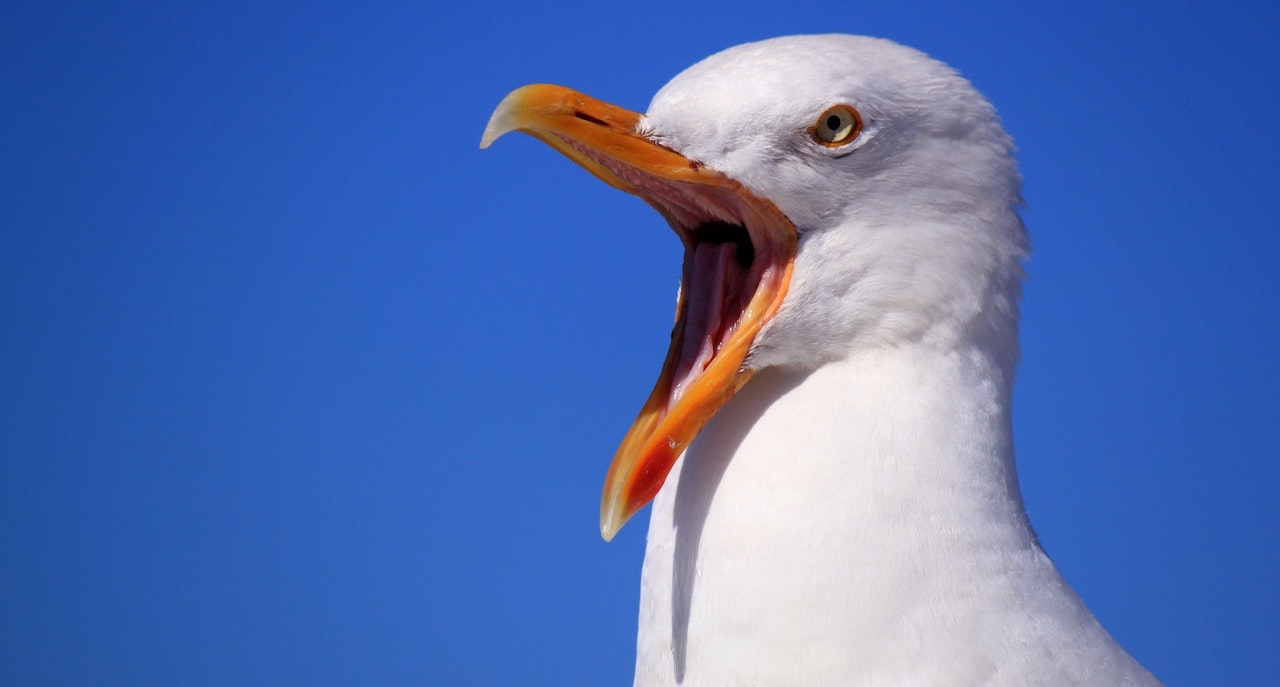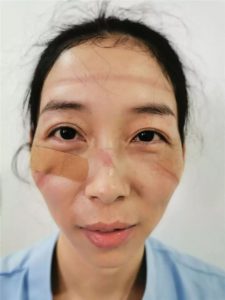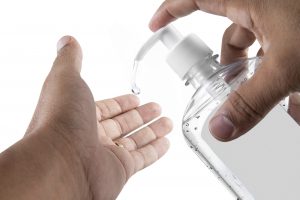Wednesday 15 April 2020

Seagulls love horseradish (Pixabay)
I want to meet the person who decided to position my place of work on the north side of the hospital. The view is magnificent, with famous London landmarks laid out before me, but there is no chance, either now or in the future, of any direct sun. The rest of the country may be developing heat-stroke, if such is ever possible in UK, but in my current location, the only way of staying vaguely comfortable is for me to be togged in multiple layers. Today, in mid-April, when spring should be at its peak, I wore five layers, including a duvet jacket, woolly hat and gloves, and still I was frozen.
I met all sorts today as I busied with my job, starting with a nurse from Intensive Care. If you seek the definition of exhaustion on legs, the nurse showed it in spades. It was 7 a.m., and the nurse was the first person I had seen, other than a dozy postman who had been delivering mail somewhere near Trafalgar Square, and a drunk who insisted on humming a tuneless version of “God Save the Queen.” He had been lying in his stained and ripped sleeping bag on a street corner fairly near the Thames.
“How long have you been on?” I asked the nurse. Her face was battered and dented from PPE. There is a job opportunity there for the future, I thought; tailor-made PPE. These days medical staff must squeeze their heads to fit the PPE provided by the Government. Perhaps it might be possible to treat PPE like ski boots. Heat up a thermoplastic material and allow it to assume the shape of an individual head. I am feeling rich already.

PPE is not good for your complexion (Bored Panda)
The nurse glanced at me as I put my question. “Twelve hours,” she replied, smiling cheerily.
“No one should have to do a 12-hour shift,” I noted, astonished.
The nurse shrugged. “It’s normal,” she said in a matter-of-fact way. Then she was on to other topics – weather, food, politics – as if she had no wish to be reminded of her crazy indoor existence. A hospital floor where disease percolated into any nook or cranny, wards where it was impossible to open a window, and shifts when she could not go to the toilet for fear that doffing her PPE would infect her.
Our conversation over, the nurse disappeared off. I could see her legs hanging heavy as she part scuffed her feet when she walked. In her mind was one thing, as best I could tell – bed. In ten hours, she would be back again, the cycle of PPE, work, eat, sleep, PPE, work, eat, sleep was seemingly without end.
My next encounter was with one of the hospital’s many security guards. They are instantly recognisable, as even in this digital age, a single guard can carry a keyring holding more than 50 keys. He smiled at me as I saw him approach. He was big, black and muscular. Not the sort of individual one might wish to cross.
I smiled back. “I bet you don’t know which one fits which door,” I joked. The large bundle of keys jangled from his waist belt. No key carried a label.
“That’s where you’re wrong,” he grinned. “I know each one. I’ve been doing this for ten years.” Although he was masked, so many people are these days, I could see he was smiling by the deepening wrinkles beneath each eye.
“I’m impressed,” I said, “but one day I’ll test you.” I stage whispered as I spoke, as these days it is simply not possible to whisper into anyone’s ear. Social distancing forbids it.
“No worries,” he laughed, and we went our separate ways.
Hospital security does not only walk around the building with large bunches of impossible-to-identify keys, they also man the main entrances. There is currently a much-reduced police presence, as they have moved on to other things, but security is fully up to speed. There are at least two guards on the outer entrance and another two on the inside. The inside guards eye you up and down from behind their masks and remind you to clean your hands with gel both when you leave and enter.
The hospital has decided to make its own gel as global supplies have plummeted. The local brew is effective but does not have quite the same feel as the industrial equivalent. It is slightly soapy, does not evaporate as effectively, and leaves your hands slimy, but they say it does the job. I was fairly sure the other day that I saw a Covid virus cowering in a corner and waving a white flag. The pest looked extremely frightened. Long may it feel that way.
When I arrived on foot for work at the hospital in the morning, the two guards on the outer entrance greeted me in their normal way. Eyes wrinkling to indicate a smile behind their masks, a nod, and a wave-through once they had seen the identity card hanging around my neck.

The hospital now makes its own hand gel (alesouzaphotos)
“Good morning,” one greeted. I sensed he was happier than usual from the tone in his voice. He spoke in heavily accented Italian. He had told me several days earlier that his family came from a small village in Lombardy and that his grandfather, at 87 years, had somehow managed to survive Covid-19. Apart from his grandfather, Lombardy had not been doing well.
“Morning,” I replied. “You OK?”
“Trying to be,” he answered.
I smiled at his more-than-accurate reply. “Aren’t we all?” I commented, gave a thumbs-up, and was on my way.
The security guard had said it in one, I thought, as I headed towards the inner entrance and my day’s work inside the building. Many of those working in the hospitals have squared it off in their minds that one day they will get Covid-19. They rely on hope and good fortune that their version will be gentle, when it comes.
I think differently. As with the security guard, my aim is never to get the disease. To better my chances, I have taken to behaving like an antisocial obsessive. It is all I have for my protection. I am in the heart of it, and yet I have no wish to join in. It is like crossing an unmarked minefield, patrolling in sniper-ridden territory, or even riding a motorbike. You must assume that everything and everyone is out to get you. It does not matter how charming or attractive they might be.
Unexpectedly, I am also having problems with the hospital’s wildlife, especially at lunchtime. In order to avoid too much contact with others when it comes to eating, of which I do far too much, I have a favoured spot outside where I can pretend to be the only survivor of a depopulated London. No one knows I am there. No human that is. London’s birdlife discovered me in moments.
I have now established that the local pigeons are addicted to chicken and sweetcorn sandwiches while seagulls adore roast beef. London does a good line in seagulls, despite being many miles from the sea. There is one seagull in particular, who is extremely bold. I have called him Horace and whenever I am in my Armageddon spot, Horace flaps in to greet me. He will turn up his beak at chicken and sweetcorn and leave that for the pigeons. But roast beef and horseradish? Horace is uncontrollable. He lands a few feet from me and slowly sidles up. He – at least I am assuming he’s a he, as I have no idea how to sex a seagull – waits patiently as he knows I will soon give in. If I offer him a slice of plain beef, he will shake his head with distaste. Seagulls are known to be highly intelligent. The moment he sees and smells horseradish on the meat, he dashes in, grabs the slice in his beak, avoids my hand, and flaps up to an overhanging branch to guzzle.
I realise that I have been given this tasking to support overworked hospital staff, but mission creep has already set in as I have just befriended a seagull. I will be sad when it is time to move on.
Who is going to give Horace his horseradish?
